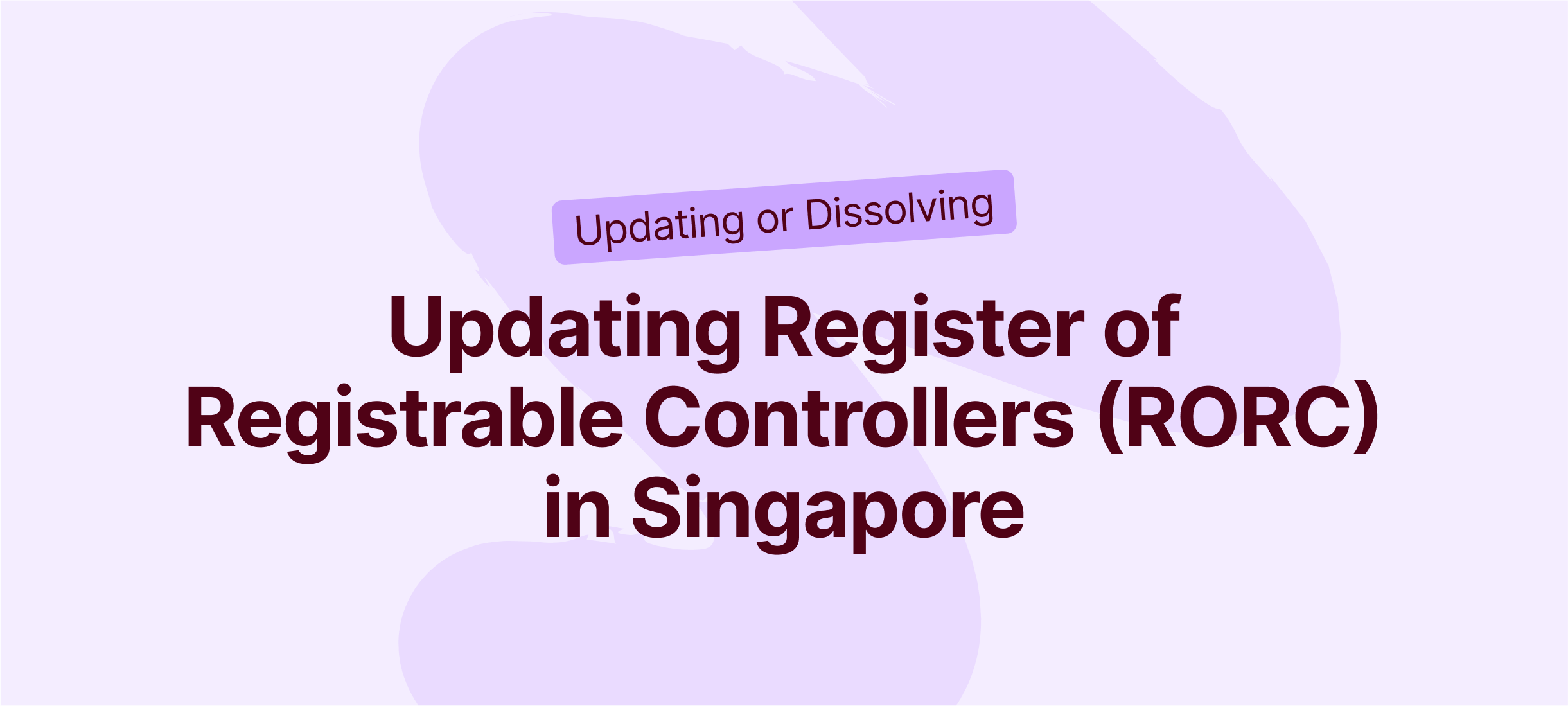Understanding the Register of Registrable Controllers: A Guide for Companies and LLPs
In today’s complex regulatory landscape, companies and limited liability partnerships (LLPs) are mandated to uphold transparency and accountability in their corporate structures. One crucial aspect of this requirement is the maintenance of the Register of Registrable Controllers (RORC), a repository that identifies individuals or entities with significant interests or control within an organization. Let’s delve deeper into the intricacies of the RORC and the obligations it imposes on businesses.
Defining a “Controller”
The term “Controller” refers to an individual or legal entity wielding substantial influence or control over a company or LLP. This influence can stem from either significant interest or significant control.
Controllers Based on Significant Interest
In the realm of significant interest, controllers may include individuals or entities holding:
– More than 25% of the shares (for companies with share capital).
– Shares conferring more than 25% of total voting power.
– Rights to more than 25% of the capital or profits (for companies without share capital).
Controllers Based on Significant Control
On the other hand, controllers exercising significant control over an entity are characterized by:
– Authority to appoint or remove directors holding a majority of voting rights.
– Ownership of more than 25% of voting rights on crucial matters.
– Significant influence or control over the company’s operations.
Controllers in LLPs
Similar principles apply to LLPs, where controllers may be identified by:
– Holding more than 25% of capital, profits, or surplus assets.
– Rights to appoint or remove managers or majority of managers.
– Significant voting rights or influence over partnership decisions.
Obligations and Timelines
All companies, foreign companies, and LLPs must maintain a RORC, except those exempted. The setup timelines vary:
– Companies incorporated on or after March 31, 2017, must establish the register within 30 days of incorporation.
– Existing companies before March 31, 2017, have 60 days after that date to comply.
– Companies subsequently required to maintain the register must do so within 60 days of the requirement.
Lodging Information with ACRA
Entities are obligated to lodge RORC information with the Accounting and Corporate Regulatory Authority (ACRA) within two business days of setup. This crucial step ensures regulatory compliance and transparency.
Utilizing Registered Filing Agents (RFAs)
Businesses can streamline the process by authorizing RFAs to handle lodgment with ACRA on their behalf, ensuring efficiency and accuracy in compliance efforts.
Penalties for Non-Compliance
Failure to maintain RORC information and lodge it with ACRA can result in prosecution, with fines of up to $5,000 upon conviction. Hence, timely compliance is strongly recommended to avoid legal repercussions.
Conclusion
In conclusion, the Register of Registrable Controllers serves as a cornerstone of corporate transparency and regulatory adherence. By understanding its nuances and fulfilling obligations promptly, companies and LLPs can navigate the regulatory landscape effectively, fostering trust and accountability within the business community.
Disclaimer: This article is for informational purposes only and does not constitute any professional advice. Feel free to contact us to consult with our professional advisors team for personalized advice and guidance.






